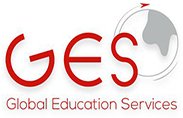TRANSFORMATIONAL EDUCATORS CREATE EXPLANATORY LEARNERS
Competent and high-performing educators are of the most important resources in all educational institutions. Resourceful pedagogues, considered the professional agents and the most directly responsible persons in the process of learning, are in charge of either helping students learn and benefit or suffer from the poor quality of their teaching. K-12 educational institutions around the world are at risk, when it comes to the fact that they may face a situation in which their educational systems fail to educate and form good learners. As a result of such concerns, there is usually a persistent need in education to assure effective pedagogy for learners at all levels. Educators are used to come to their career with little formal professional training or experience. Such a lack of professional training and development of instructors can be a main reason for any dissatisfaction in the quality of their teaching to have students with the necessary knowledge and skills in the different subject matters. Today, the need to shift to a state-of-the-art research-based teaching, claims that faculty members should always be in constant contact with research for possible future teaching innovations. Teachers’ professional training and development is a necessary ingredient to support innovative and benefificial instructing.
EFFECTIVE EDUCATOR IN-SERVICE TRAINING MAKES A DIFFERENCE
The roles and functions of educational institutions in many countries are changing and so is the role of educators. Nowadays, teachers are asked to make more effective use of information and communication technologies for teaching; to engage more in planning within evaluative and accountability frameworks; and to do more to involve parents in schools. No matter how good pre-service training for educators is, it cannot be expected to prepare them for all the challenges they will face throughout their careers. Education systems, therefore, seek to provide lecturers with opportunities for in-service professional development in order to maintain a high standard of teaching and learning and to retain a high-quality teacher workforce. There is growing interest in developing educational institutions as learning organizations, in ways for teachers to share their expertise and experience more systematically. Effective professional development programs include training, practice and feedback, and offer adequate time and follow-up support. The development of educator can serve a number of objectives including:
Updating participants’ knowledge, skills, attitudes, and approaches in light of the development of new teaching techniques.
- Enabling participants to apply changes made to the pedagogical practice.
- Enabling educational institutions to develop and apply new strategies.
- Retaining and engaging talented teachers and help them realize their full potential.
- Aligning educator behaviors with institutional
- strategies, structures, and goals.
- Gaining sustainable results.
- Setting a profound culture of accountability an innovation.
- Enhancing curricula instructional design.
- Enhancing Faculty-Parent Relationships.
- Achieving profound market positioning and reputation

